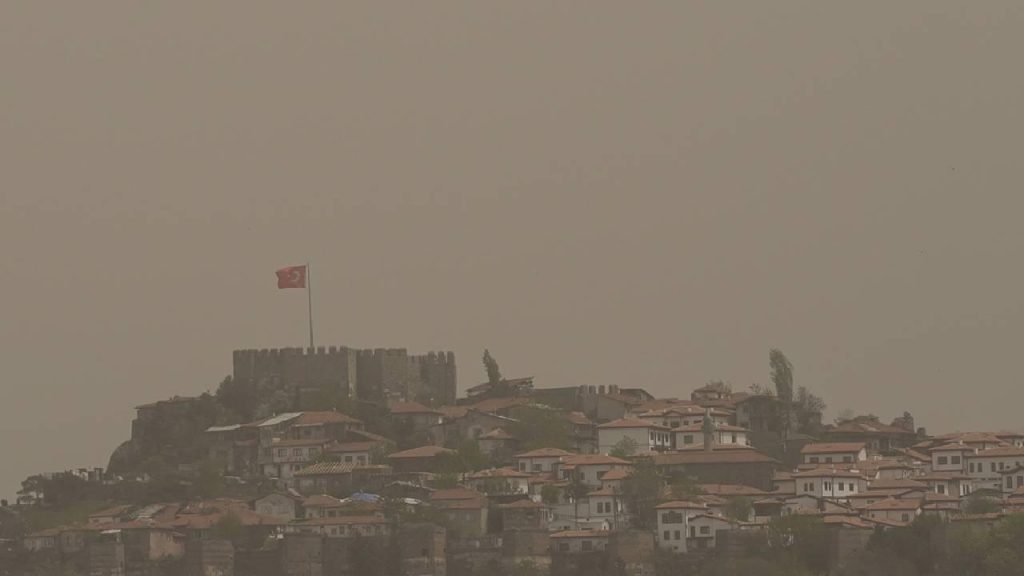Prof. Dr. Demet Karnak recently made a statement regarding the effects of dust transportation on human health, which has been effective nationwide. Karnak explained that plants release certain dust particles into the atmosphere to reproduce and continue their vital processes, and these particles move with the wind. Known as “dust transportation”, this natural phenomenon can cause certain diseases in sensitive individuals.
Dr. Karnak emphasized, “If we consider that even a single pine tree releases billions of pollen into the atmosphere, we can understand how serious the issue is. Particles carried by dust transportation in the air can lead to increased cough complaints and various illnesses in individuals with asthma, COPD, airway sensitivity, or suppressed immunity. Therefore, we recommend that sensitive individuals stay indoors on days with high levels of dust transportation like the current situation, and avoid going outside as much as possible.”
Dr. Karnak pointed out the importance of paying attention to cough that lasts for longer than 8 weeks, highlighting that even a simple upper respiratory tract infection can lead to airway sensitivity in individuals. He stressed that a persistent cough should be taken seriously and individuals should seek the advice of a chest disease specialist for further investigation, such as a simple chest x-ray and additional tests to determine the underlying cause of the cough.
Dust transportation can affect the entire body
Dr. Karnak also mentioned that a persistent cough can be caused not only by dust transportation but also by various other reasons. He elaborated, “Billions of tons of dust are propelled into the air through dust transportation, containing nutrients, iron, selenium, toxic sulfur dioxide gases, and many other elements. These elements can affect not only the airways but the entire body of individuals. Dust transportation, aside from chronic coughing, can lead to permanent damage due to recurring inflammation, thickening of lung tissue, increased secretion in the airways, and the emergence of persistent infections.”
In industrialized areas, factory dust, carbon particles, and vehicle exhaust fumes also pollute the atmosphere, leading to air pollution and similar health risks. Dr. Karnak reminded that the World Health Organization has classified these pollutants as first-degree carcinogens. He emphasized that tobacco and tobacco products are also significant risk factors for lung health, stating that individuals who smoke often consider coughing normal when it is actually a symptom that needs medical attention.
Dr. Karnak stressed that a healthy individual should not cough, and coughing and bringing up phlegm are not normal symptoms. He observed that individuals usually seek medical help when they start coughing up blood, which indicates an advanced stage of disease. Desert dust, suspended bacteria and viruses, air pollution, smoking, and carbon particles can even cause lung cancer. Therefore, it is crucial not to dismiss a cough and to seek medical advice in the early stages.
Dr. Karnak pointed out that these months are particularly dangerous in terms of dust transportation, with desert dust and pollen heavily present in the air. While particle-trapping masks can provide some protection from outdoor dust transportation, their complex structure makes daily use challenging. He highlighted that the best protection method for individuals with chronic illnesses is to avoid going outside on days with high levels of dust transportation.


